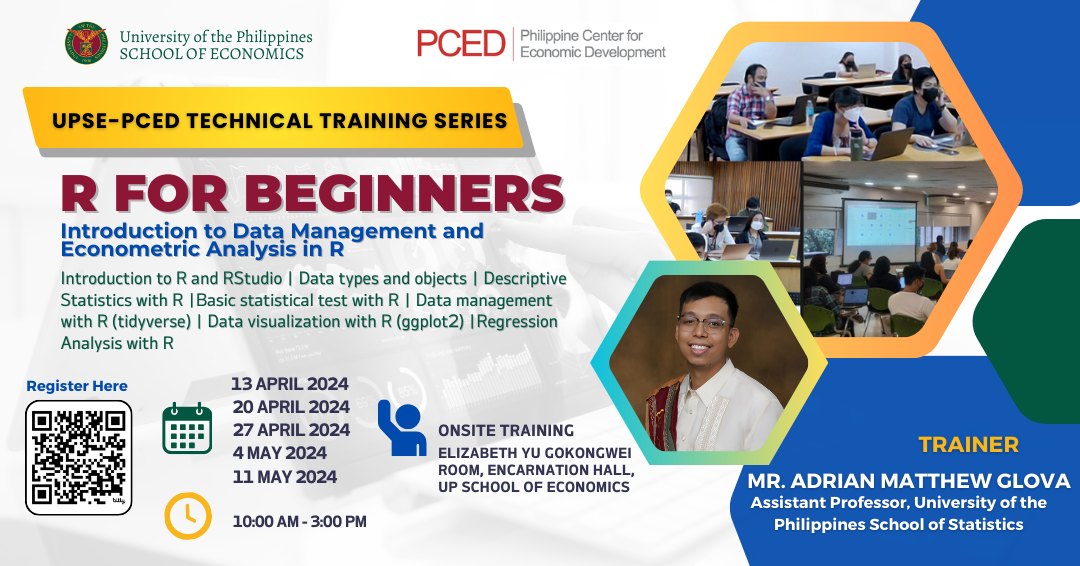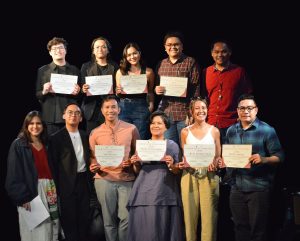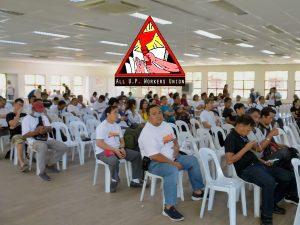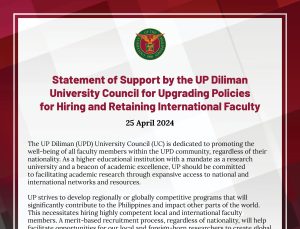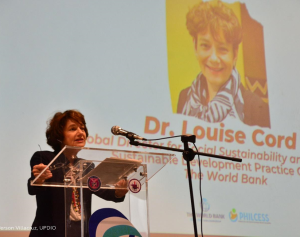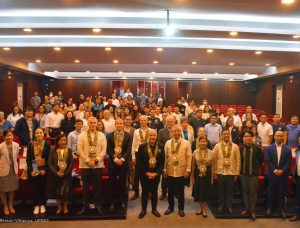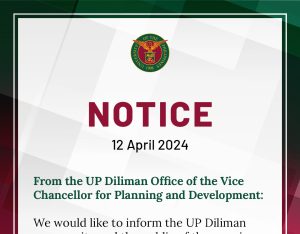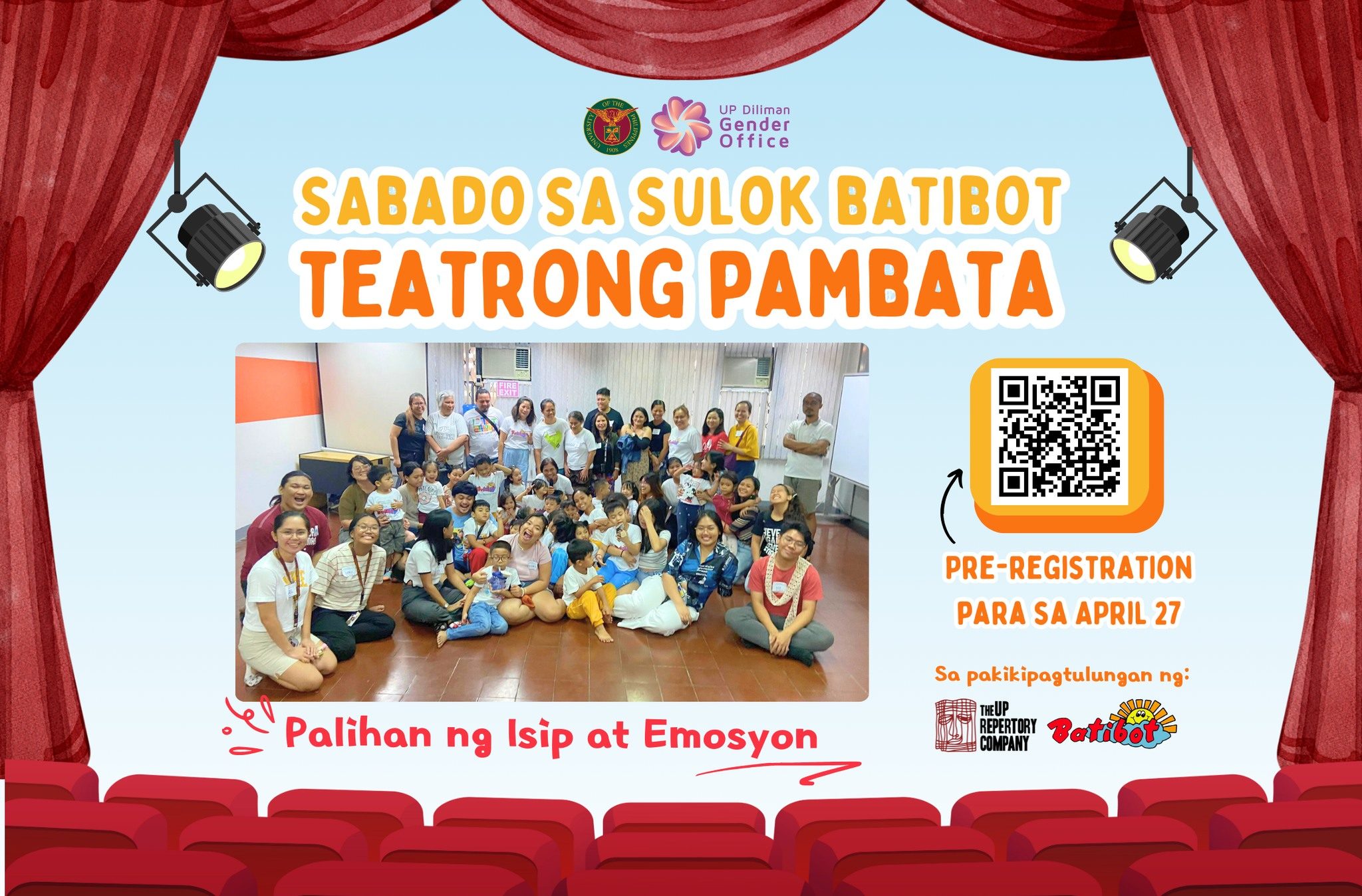UPDate ONLINE
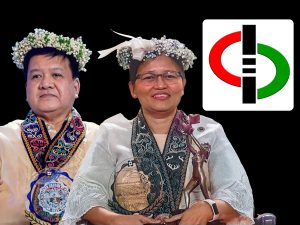
NRCP recognizes 2 UPD profs and an academic unit
Two UP Diliman (UPD) College of Science (CS) professors and an academic unit from the UPD College of Engineering (COE) were this year’s recipients of the Department of Science and Technology-National Research Council of the Philippines (DOST-NRCP) awards. Reynaldo L. Garcia, PhD of the National Institute of Molecular Biology and Biotechnology (NIMBB) and Cristine D. […]
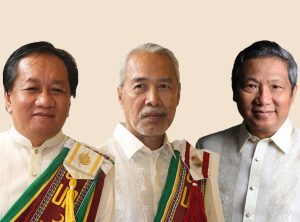
3 guro ng UPD umani ng parangal
Tatlong guro ng UP Diliman (UPD) ang binigyang pagkilala ng iba’t ibang organisasyon nitong Abril. Ang mga pinarangalan ay sina Dekano Jimmuel C. Naval ng Kolehiyo ng Arte at Literatura at Apolonio B. Chua, PhD, professor emeritus sa UPD Departamento ng Filipino at Panitikan ng Pilipinas; at Nicanor G. Tiongson, PhD, professor emeritus sa UP […]
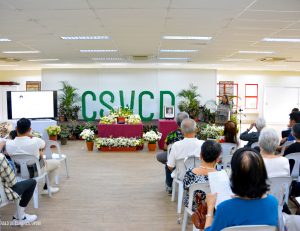
Pangalangan remembered
A memorial service for former UP Diliman (UPD) College of Social Work and Community Development (CSWCD) dean Evelina Asuncion Pangalangan gathered former students, colleagues at the CSWCD, colleagues from National Association for Social Work Education, Inc. Philippines (NASWEI), and members of her family at the college’s Bulwagang Tandang Sora recently. CSWCD Dean Lenore Polotan-dela Cruz […]
Events
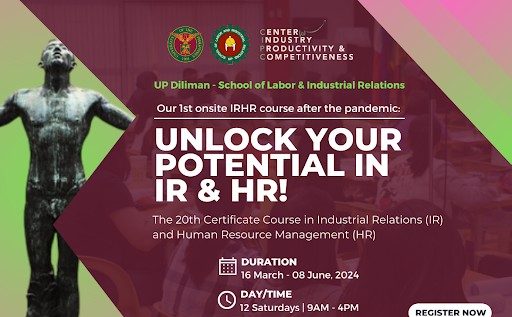
20th Certificate Course in Industrial Relations and Human Resource Management
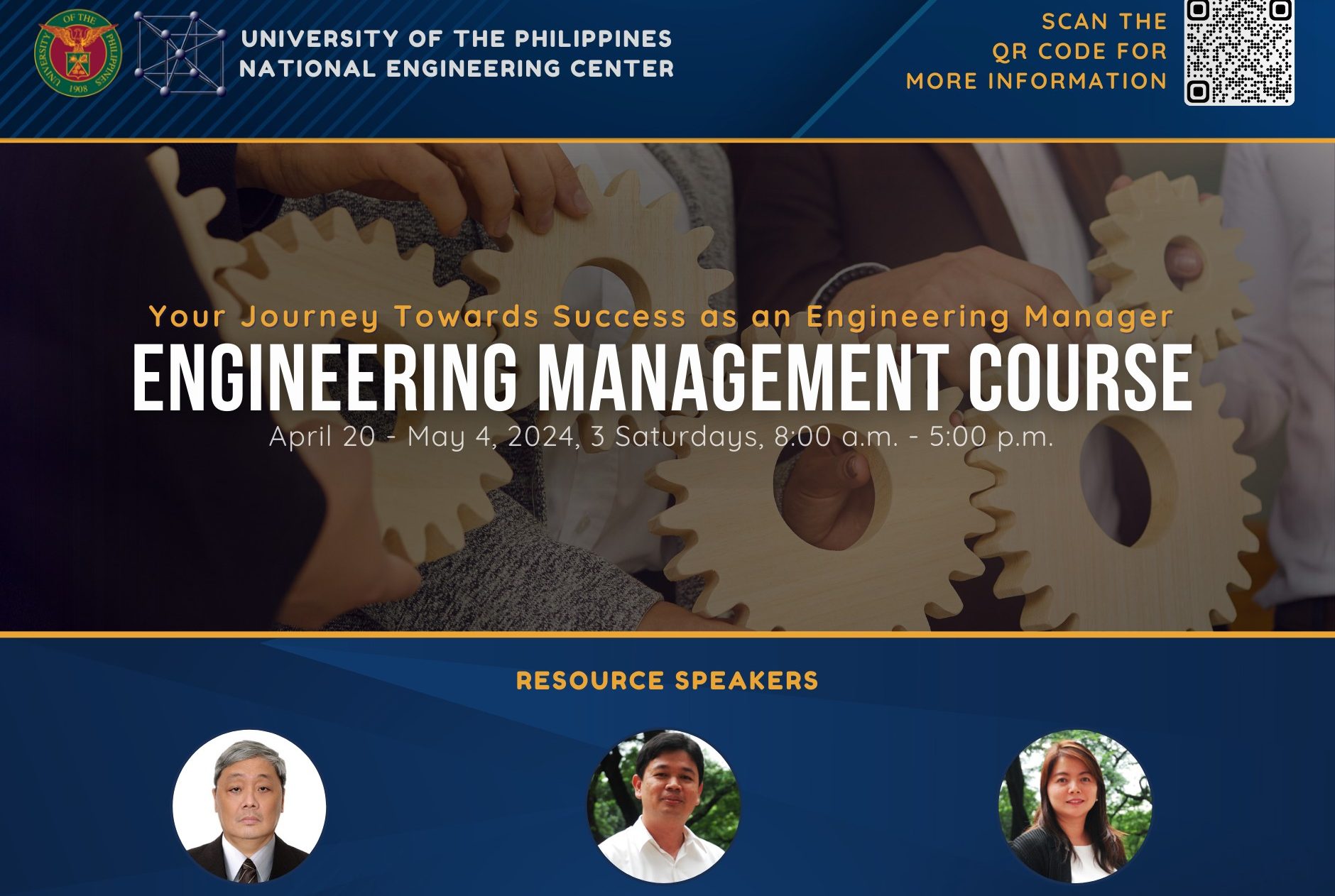
Engineering Management Course
